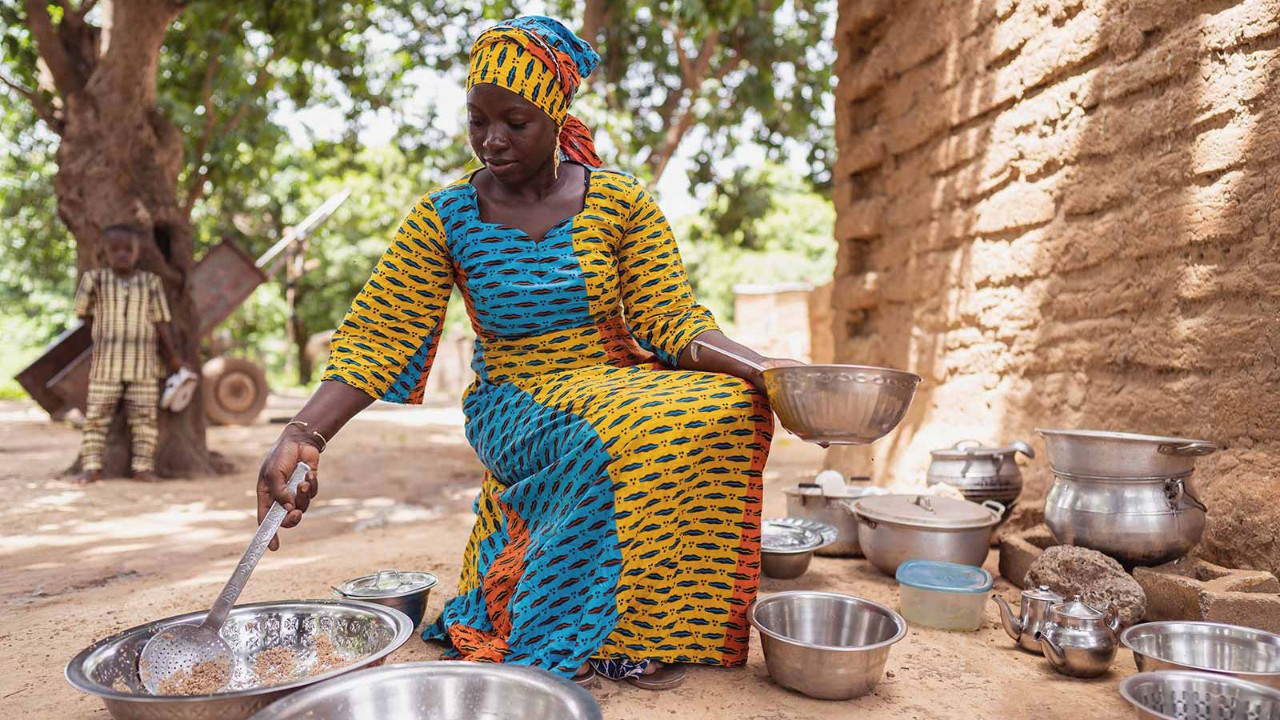
Social enterprises contribute significantly not only to local economies but directly to the lives of individuals in deprived communities. Careers in this sector can be hugely rewarding, and finance professionals have the skillsets that can make a huge difference to the lives of others.
One professional accountant bringing his skills to social enterprise Koko Networks is group financial controller William Rudd ACCA. His Kenya-based employer has developed a bio-ethanol cooker with a refillable canister to address the problem of lack of access to clean cooking.
‘We had to figure out ways to do reconciliations without breaking Excel’
This problem affects 2.3 billion people worldwide, according to the World Health Organization. The use of inefficient cooking equipment paired with polluting fuels – such as wood, coal, charcoal, dung, crop waste and kerosene – is not only detrimental to the environment but also to household health, and in particular to women and children in low- and middle-income countries.
Koko is mainstreaming liquid bio-ethanol cooking fuel as a fast, safe and affordable alternative to dirty cooking fuels, and has introduced a suite of distribution and dispensing technologies (such as vending machines) to ensure that customers can access clean fuel at prices that undercut more mainstream fuels.
Career scope
Rudd explains that finance teams in this sector will look familiar to most accountancy professionals, with accounting, tax and treasury, but there will be distinct areas of particular focus. For example, financial planning and analysis (FP&A) is vital in providing decision-makers with accurate forecasts, which can inform strategic planning as well as ensure financial health as these businesses rapidly evolve domestically and often internationally.
‘FP&A is similar the world over,’ says Rudd, ‘and Koko is no exception, but with the added challenges of high growth – when I joined, we were growing at 10% per month – in a new industry, with volatile foreign exchange rates.’
Finance business partnering is another key aspect to working in a business focused on international growth into new markets. Here, finance can help strategic teams navigate the operational realities of future business models and new locations.
‘Ours is not an intuitive business model. Selling more products is not necessarily the best business plan; if we sell a cooker, but no one uses it, then we lose money on that unit,’ says Rudd. ‘The obvious example of this would be if we sold cookers in areas where we don’t yet have fuel distribution capability. Given such complexities, finance becomes a useful partner to the business.’
Risk and compliance are important areas when operating in multiple jurisdictions and in a new space exposed to quickly evolving regulations.
Beyond this, the main challenge for finance teams is ensuring a business is ready for fast growth, which will require tech-savvy professionals. ‘When our mobile money transactions exceeded one million per month for the first time, we had to figure out ways to do reconciliations without breaking Excel. We now have four times that many and have automated a lot of the process,’ says Rudd.
‘It’s been fantastic to get deeper into the world of carbon credits, despite the challenges’
Social enterprises working in the broader sustainability space will want to put their money where their mouth is when it comes to their own green credentials. Accountants are well placed to be sustainability drivers within a business. They understand the green finance actions and options available in support of the transition to net-zero carbon emissions; they have the skills to consider non-financial as well as financial business drivers; and can lead in training staff and developing talent that can embed sustainability and transform businesses.
‘The climate space is one that will be essential for all of us, and accountants are well placed to help progression away from pollutants,’ says Rudd. ‘It’s been fantastic to get deeper into the world of carbon credits, despite the challenges it causes for us; we’ve had to work with specialists globally to get the right accounting policies in place, for both internally generated carbon credits and for transfer pricing.’
Koko is able to subsidise its two revenue streams by generating carbon credits for every cooker it sells. ‘We sell these credits either on the voluntary market direct to large corporations or to various compliance markets around the world – for example, Korea and Europe,’ says Rudd.
Getting in and getting on
A strong hybrid skillset will make you attractive to organisations in this space. They’re often looking for professionals with at least a few years’ experience in either audit or a commerce with exposure to fast growth and seed funding. You should be technically strong and of a mindset to continuously learn and improve your area, whether it’s accounting, tax, treasury, risk and compliance or FP&A.
‘When you come across customers in the street and they love what you’re doing, that is a great feeling’
Additionally, you’ll want to prove you’re self-motivated and capable of working with and leading teams; a strong communicator who can work effectively across departments; and a data storyteller who can harness big data and new technology to support strategic decision-making and drive business growth.
‘Learning how to manage a varied team, in multiple locations, in a fast-moving company, in a volatile world, has been fantastic,’ says Rudd.
A desire to make a difference will be respected, even expected. Rudd moved into this sector to work for a company that was making a difference and to do something good for the world. ‘Finance aside, when you come across customers in the street and they love what you’re doing, that is a great feeling.’
More information
Find out about sustainability-related online learning courses from ACCA.
Visit the ACCA Careers website for news and advice on your next career move.


